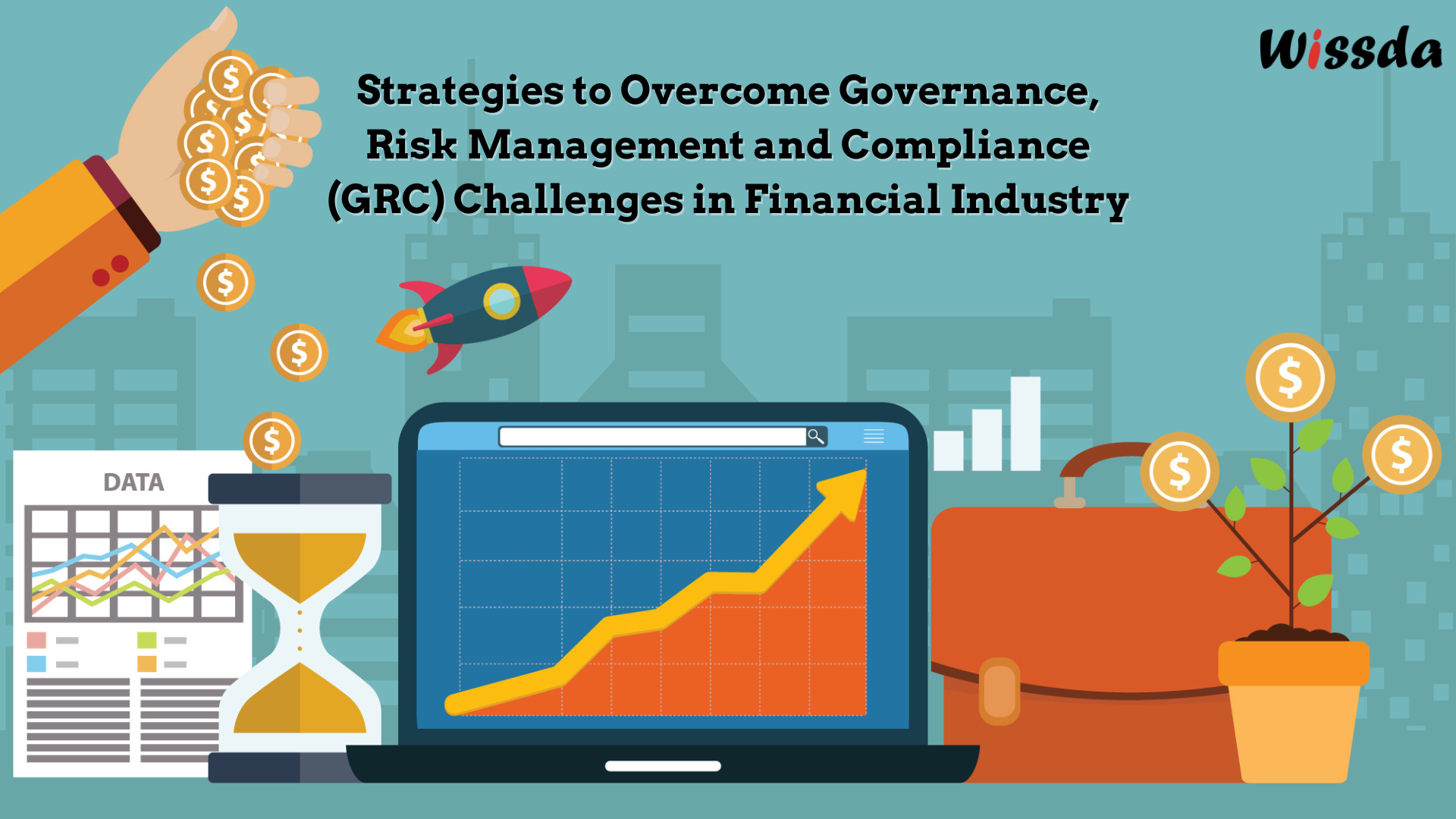Financial institutions, including banks, insurance companies, and asset management firms, must navigate a complex web of regulations, risk management practices, and governance protocols to maintain their operational integrity, protect their reputation, and ensure long-term success. Governance, Risk, and Compliance (GRC) have become critical components of an organization’s strategic framework. Understanding the specific considerations and challenges of GRC in the finance industry is important for effectively managing these aspects and ensuring that organizations are well-prepared to thrive in a dynamic environment.
Understanding the Importance of GRC in Finance
The financial industry operates under intense scrutiny from regulators, stakeholders, and the public. Governance, Risk, and Compliance are not just about adhering to laws and regulations; they are about embedding a culture of accountability, transparency, and ethical behavior across the organization. GRC in finance involves:
- Governance: Establishing frameworks and structures that ensure decisions align with the institution’s goals, values, and regulatory requirements.
- Risk Management: Identifying, assessing, and mitigating risks that could impact the institution’s ability to achieve its objectives.
- Compliance: Adhering to laws, regulations, and internal policies to avoid legal penalties, financial loss, and reputational damage.
Together, these elements help financial institutions manage risks, improve decision-making, and build trust with stakeholders.
Key Considerations in Financial GRC
1. Regulatory Compliance and Oversight
The financial industry is among the most heavily regulated sectors, with numerous agencies overseeing different aspects of operations. Financial institutions must comply with regulations such as the Dodd-Frank Act, the Basel III Accords, Anti-Money Laundering (AML) rules, and the General Data Protection Regulation (GDPR), among others. The challenge lies in keeping up with the constantly evolving regulatory landscape and ensuring that all compliance requirements are met across various jurisdictions.
Consideration: Institutions must invest in strong compliance programs that include regular training, automated monitoring systems, and effective internal controls. Keeping informed of regulatory changes and maintaining an adaptable compliance strategy is crucial for avoiding fines, legal challenges, and reputational damage.
2. Risk Management Complexity
The financial industry is inherently risky due to the nature of its operations, which involve large sums of money, complex financial products, and exposure to global markets. Risks in this sector can be classified into several categories, including credit risk, market risk, operational risk, and liquidity risk.
Consideration: A comprehensive risk management framework is essential. This involves using advanced analytics and data-driven approaches to predict, identify, and mitigate risks. Financial institutions should also focus on building resilient systems and processes that can withstand disruptions, whether from market volatility, cyber threats, or other unforeseen events.
3. Data Management and Cybersecurity
Financial institutions deal with vast amounts of sensitive data, including personal customer information, transaction details, and financial records. Managing this data responsibly and protecting it from breaches is not just a regulatory requirement but also a critical aspect of maintaining customer trust.
Consideration: Implementing strong cybersecurity measures and data management protocols is vital. This includes encryption, multi-factor authentication, regular security audits, and compliance with data protection laws. Institutions must also prepare for potential data breaches by having a response plan in place that includes communication strategies and remediation steps.
4. Operational Resilience
Operational resilience refers to the ability of a financial institution to continue delivering critical operations through disruptions, whether due to technological failures, natural disasters, or pandemics. The COVID-19 pandemic, for instance, highlighted the importance of operational resilience as institutions had to rapidly adapt to remote working and changing customer needs.
Consideration: Financial institutions should develop and regularly test their business continuity plans (BCPs) and disaster recovery strategies. This includes identifying critical operations, assessing vulnerabilities, and ensuring that systems and processes can quickly recover from disruptions.
5. Third-Party Risk Management
Financial institutions increasingly rely on third-party vendors for various services, from IT solutions to customer support. While outsourcing can offer cost savings and efficiency, it also introduces risks, including data breaches, operational failures, and regulatory compliance issues.
Consideration: A well-structured third-party risk management (TPRM) program is essential. This involves conducting thorough due diligence before engaging vendors, monitoring their performance, and ensuring they comply with relevant regulations. Institutions should also have contingency plans in case a vendor fails to deliver as expected.
Learn How do you manage Third Party Risk?
6. Ethics and Corporate Governance
Governance in financial institutions goes beyond regulatory compliance; it involves creating an ethical culture that promotes transparency, accountability, and fairness. Failures in governance can lead to scandals, financial losses, and a loss of stakeholder trust.
Consideration: Financial institutions should establish clear governance structures, with defined roles and responsibilities for boards, executives, and management. Regularly reviewing governance practices and ensuring alignment with industry standards and best practices is critical.
Challenges in Implementing GRC in Financial Institutions
1. Integration of GRC Across the Organization
One of the most significant challenges financial institutions face is integrating GRC activities across various departments. Often, GRC efforts are siloed, with different teams working on governance, risk, and compliance independently. This lack of coordination can lead to inefficiencies, redundancies, and gaps in risk management.
Solution: Financial institutions should adopt a unified GRC platform that allows for centralized monitoring, reporting, and management of governance, risk, and compliance activities. This integration can lead to more informed decision-making and a more cohesive approach to managing risks and regulatory requirements.
2. Balancing Innovation with Compliance
The financial industry is rapidly evolving, with innovations such as fintech, blockchain, and artificial intelligence transforming how financial institutions operate. However, these innovations also introduce new risks and regulatory challenges. Balancing the need for innovation with stringent compliance requirements can be a difficult task.
Solution: Institutions should take a forward-thinking approach to innovation, ensuring that compliance is considered from the outset of any new initiative. This involves close collaboration between compliance, legal, and innovation teams to identify potential risks and regulatory hurdles early in the process. By embedding compliance into the innovation process, financial institutions can pursue new technologies and business models while remaining within regulatory boundaries.
3. Evolving Regulatory Landscape
The regulatory environment for financial institutions is constantly changing, with new laws and guidelines being introduced regularly. Keeping up with these changes and ensuring ongoing compliance can be a daunting challenge, especially for global institutions that operate in multiple jurisdictions.
Solution: Financial institutions should invest in regulatory intelligence tools that provide real-time updates on regulatory changes. Additionally, fostering a culture of continuous learning and training within the organization can help ensure that employees are aware of and understand new regulations as they are introduced. Regular audits and assessments can also help institutions stay compliant with evolving regulations.
4. Resource Constraints
Implementing and maintaining a comprehensive GRC framework requires significant resources, including skilled personnel, technology, and financial investment. Smaller financial institutions may struggle to allocate the necessary resources to meet GRC requirements effectively.
Solution: Outsourcing certain GRC functions to specialized providers can be a cost-effective solution for institutions with limited resources. Managed services, for example, can provide expertise in areas such as compliance monitoring, risk assessments, and cybersecurity, allowing institutions to focus on their core operations while still maintaining a strong GRC posture.
Conclusion
Governance, Risk, and Compliance (GRC) are integral to the success and sustainability of financial institutions. By addressing the specific considerations and challenges outlined above, financial institutions can build effective GRC frameworks that not only ensure regulatory compliance but also enhance risk management, support innovation, and protect their reputation. In a world where the financial environment is continually evolving, a strong GRC strategy is essential for managing uncertainty and achieving long-term growth.
At Wissda, we understand the intricacies of GRC in the financial industry. Our tailored solutions and expert services are designed to help financial institutions manage risks, comply with regulations, and achieve their strategic objectives. Whether you need assistance with GRC solution implementation, risk management, compliance, or data analytics, Wissda is here to support your journey toward a more resilient and compliant future.






0 Comments